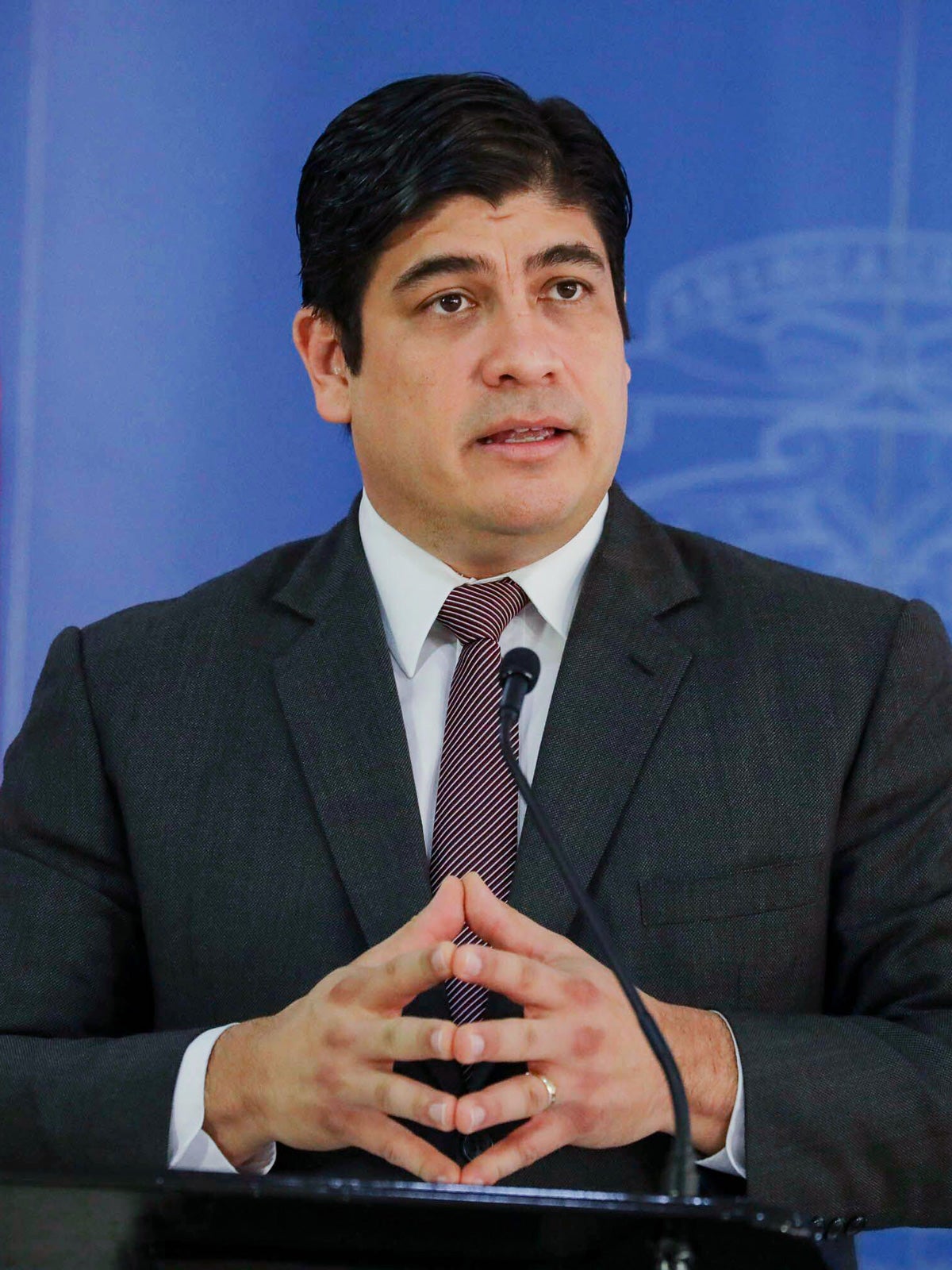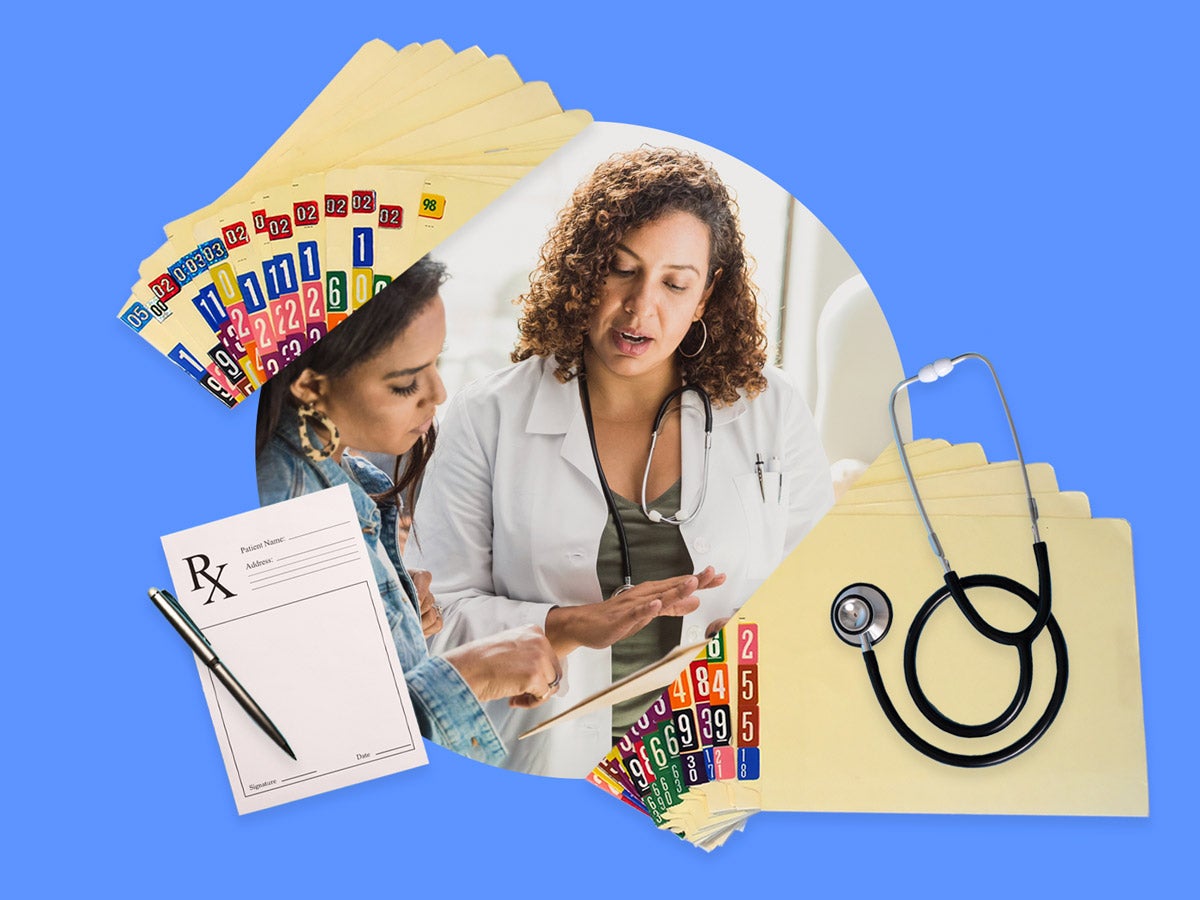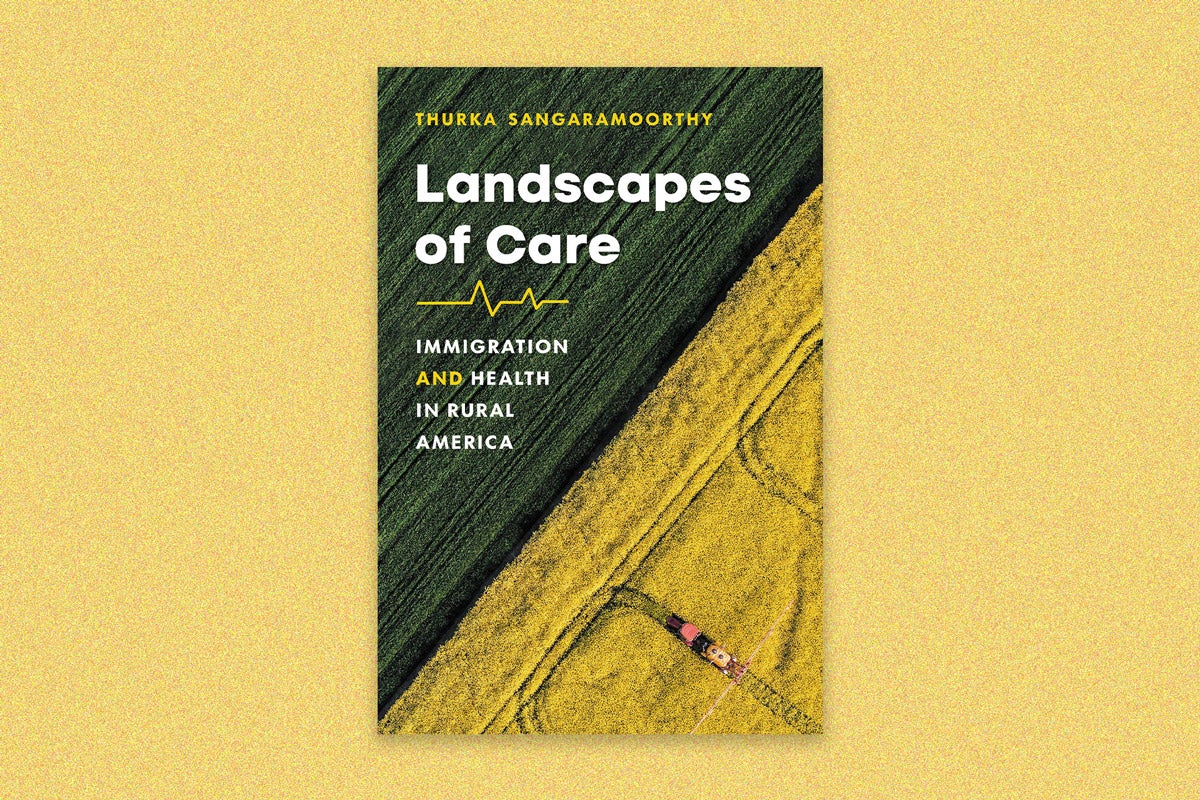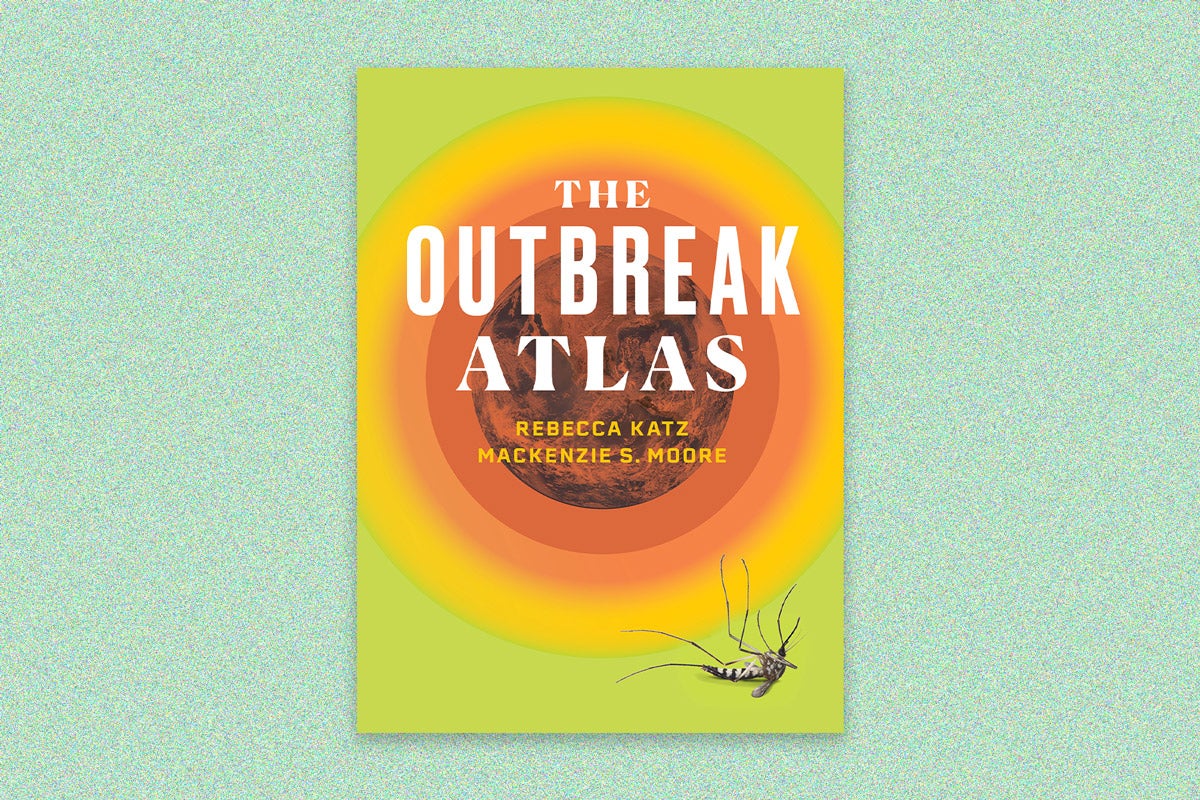
People
How Costa Rica became a global health leader: Q&A with President Carlos Alvarado Quesada
Carlos Alvarado Quesada, the former president of Costa Rica, left office almost exactly a year ago, in May 2022, after governing through the first two years of the COVID-19 pandemic. Costa Rica’s pandemic response was globally applauded for its effectiveness, with the country reporting the lowest case fatality rates in the region in the pandemic’s first year. Many observers have pointed to Costa Rica’s strong public health system as key to its pandemic successes.
Now a professor of practice in diplomacy at Tufts University, President Alvarado sat down with Harvard Public Health senior editor Christine Mehta to talk about governing through a pandemic, Costa Rica’s public health successes, and how he deals with stress: GarageBand. The interview was edited for clarity.
Sign up for Harvard Public Health
Delivered to your inbox weekly.
Mehta: Before you got into politics you were a journalist and a writer. You even published some fiction books and short stories. How did you go from writing to politics?
Alvarado: Well, I always wanted to be a writer. But I thought that being a journalist was the closest I’d get to making a living from writing. So, at 18 years old, I studied journalism and worked as a journalist for a while into my mid-twenties. I had a complicated relationship with it.
But my passion for politics comes from a similar place to my passion for art, for writing, and for music. You create something that has never existed before. When you write, play an instrument, or compose music, you create something. I found politics was the same. I saw politics as the process of creating new policy—a creative possibility.
Mehta: What instrument do you play?
Alvarado: Guitar. I started playing when I was president. I needed to do something to help with the stress. I also started playing and composing music on GarageBand. I’ve put together whole albums. I compose things mostly to calm down, but it also brings out another part of my brain and myself. I’m also a frustrated bass guitar player and I was in a band when I was young.
Mehta: So, what I’m hearing is that creativity has been a cornerstone of how you’ve approached so much of what you do in your life, from writing to journalism to politics.
Alvarado: That’s right. When I used to play in a band, I learned more about teamwork and collaboration than anywhere else. I learned that leadership was not about imposing my own agenda on the band and the music, but it was all about everyone trying to agree on something with everyone coming from different perspectives to the music. In politics, it’s the same. It’s about creating the conditions to solve problems and create policy. All of that requires a lot of creativity.
Mehta: You certainly needed a lot of creativity to govern through a pandemic. You ran for office and became president of Costa Rica in 2018 at just 38 years old. What were your public health priorities when you came to office?
Alvarado: We had two major plans in terms of public health. One was moving our public health system even more towards disease prevention, and the second was preparing our system for an aging population.
First, we wanted to prevent disease at a much earlier stage. So much of health is based on treating problems when they arise, so hospitals, medicine, diagnostics become very important, and very expensive. We wanted to move our public health approach towards emphasizing tools like exercise, nutrition, and mental health. Human suffering can be prevented at a much earlier stage.
Second, our population is growing older, and we need to prepare our system in terms of pensions, the labor force, and health care.
But then COVID-19 came along and changed everything. We have a very robust public health system we’ve built up over the decades. Obviously, that helped us a lot. And so, by all measures [cases, fatality] we were responding to the pandemic very well, but we still struggled to get people to believe the truth about vaccines, masking, and social distancing. That was all still a challenge.
Watch now: A Q&A with President Carlos Alvarado Quesada
Presented by Harvard Public Health and the Studio at Harvard Chan
Mehta: Walk me through those first days and weeks of the pandemic. What were the first decisions you had to make when COVID-19 was detected?
If we go back to 2020, it’s like I have three sets of memories. In January 2020, my minister of communications came to me and said, “Mr. President, there’s a virus outbreak in Asia. We should look at it.” So, I took his advice, and asked the minister of health to give a presentation on the outbreak to the Cabinet. The health minister was also an epidemiologist. He told the cabinet that we should be assessing two variables: how deadly the virus will be, and how fast it spreads. We set up a task force in January to follow up.
In February, we started getting the news from China and later on from Italy, and we knew this would become a crisis in Costa Rica. In March, the first case was detected in Costa Rica. I remember preparing for the press conference – rehearsing that we shouldn’t shake hands but bump elbows to communicate to the public about preventive health measures.
In the end, 2020 would be the year we put many things on hold. Because the focus was to save lives and protect people during that time.
When I used to play in a band, I learned more about teamwork and collaboration than anywhere else.
— Carlos Alvarado Quesada, former president of costa rica
Mehta: In the U.S., lack of public buy-in on vaccines, masking, lockdowns, and social distancing was a huge issue. How did that play out in Costa Rica?
Alvarado: It was really challenging to convince the public to take those measures, especially because the costs to people’s livelihoods were so high. And of course, it’s not only health and preventing disease that’s important, but unemployment is also a huge burden.
The problem is, as president, I had access to all of these forecasts. We were able to say with accuracy that 200 more people are going to die next month if we don’t enforce masking, or social distancing, and so on. Right? So, when you know that, you are responsible for those lives. But on the other hand, you’re keeping up restrictions that cost people their jobs. So, it’s a decision between lives and livelihoods.
Mehta: How did you go about making those decisions?
Alvarado: We built a very large team—representatives from the Ministry of Health, Ministry of Security, Ministry of Tourism, education, business, and so on. Everyone brought their point of view, and we tried to come up with a third way. That’s why we were the first country to open our borders back up to tourism, and we were the seventh country to get the vaccines. We invested early on in getting the Pfizer vaccine, which was a huge risk because if the vaccine went wrong, we were putting money down the drain. But that allowed us to have the vaccine very early.
We also knew we couldn’t win this battle in the hospitals. We had to win this on the streets through prevention and community health work. Our community health personnel were heroes. We had more people working with the municipalities to do the local work of just getting people to wear masks and wash their hands.
We couldn’t win by expanding the number of hospital beds, because the real shortage was trained personnel, and it takes years to properly train the people you need for intensive care. My Minister of Health was very emphatic about this. We always fought to never have the system collapse. Our death toll was similar to European countries like Germany or Luxembourg and we don’t even have close to their GDP.
Mehta: Is that because your health system is less expensive?
Alvarado: Yes, it is way less expensive to run four-person units in every town that focuses on primary care and prevention. Our concept is “hospitals without walls.” We want to stop just working on people who have already developed disease. We want to prevent the disease.
And a strong legacy of public health made a difference. You’re talking about a system that was founded in 1941 (it turned 80 while I was in office). We have a strong social security system, 23 national hospitals, hundreds of clinics, thousands of local health units, and a strong Ministry of Health that can provide guidance.
Mehta: What does it take to build that kind of system?
Alvarado: It takes vision and political will. The problem is that building new hospitals is very expensive, but a new hospital gives people a sense of security. And that needs to change. A new hospital should be a last resort in some ways. Our goal is to provide a primary level of care that is close and easy to access for everyone. And then care can escalate based on needs from there. But the hospital shouldn’t be the starting point. I think we have this view that we can fix everything with a pill or procedure, but that might not be the case. You might be able to fix a lot of things at an earlier stage with non-medical interventions.
We were able to say with accuracy that 200 more people are going to die next month if we don’t enforce masking, or social distancing, and so on. So, when you know that, you are responsible for those lives.
— Carlos Alvarado Quesad, former president of costa rica
Mehta: Have there been disruptions to your public health system because of COVID-19? Have you seen other diseases re-emerge?
Alvarado: Oh yes. Malaria has come back and we thought we had eradicated it. My [former] minister of health is now the director of infectious disease at the Pan-American Health Organization (PAHO). He has identified that rates of malaria vaccination decreased during the pandemic. COVID-19 made people question things that we thought were settled, like vaccinations.
Mehta: What do you think the future holds?
Alvarado: The global system has a challenge to make policies work for everybody regardless of their country. COVID-19 demonstrated that it wasn’t the science that failed, it was the politics.
Top image: GDA/La Nación/ Costa Rica via AP Photos


